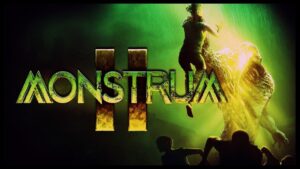As generative AI continues to gain support, Amazon has stepped in with policies on bot-authored books, which have created a headache for the e-commerce firm after they flooded its platform.
Generative AI’s ability to produce prose, poems, lyrics, images, audio, and video has generally fascinated the world, making people with little or no skills turn to the technology to produce content.
The “AI nonsense”
However, the same technology comes with its own baggage, and Amazon is in a fix. Now, its “everything store” is filled with books that were written by bots, according to an article by Wired.
While the article does not state exactly how many AI-generated books are for sale on the platform, there is a wide range of them on the platform, covering various genres, with some genres plagued by low-quality titles. Earlier this year, author Caitlyn Lynch called this “AI nonsense” in a post on X (formerly Twitter).
What is more worrisome is that some of the books bear the names and likenesses of real human writers. For instance, this summer, Jane Friedman, a writer and publishing industry expert, discovered five separate books that were falsely listed as hers on Amazon.
One of the fraudulent titles is “How to Write and Publish an eBook Quickly.” And the people behind these bots are determined in their unscrupulous activities. According to the Wired report, there is a “whole strain hustle culture on YouTube videos.”
These encourage viewers to easily get rich through producing AI-generated material for Kindle, carrying titles like;
“How to Make UNDETECTABLE AI Content for Amazon KDP (Guaranteed Method).”
These latest money-making schemes are now making it difficult for readers looking for books to get high-quality reading material written by humans.
Also read: ChatGPT’s Real-Time Web Browsing Breaks Free from Limited 2021 Data
Amazon’s policy
Faced with this dilemma, Amazon has, in the past few weeks, started taking steps to deal with the problem. The company now has a cap on the number of books a single writer can publish. It has also introduced a policy that requires writers to reveal if their books were written by humans or were AI-generated.
“Amazon is ethically obligated to disclose this information,” said Friedman.
“The authors and publishers should be disclosing it already, but if they don’t, then Amazon needs to mandate it, along with every retailer and distributor.”
She added that failure to do so was tantamount to “breeding distrust and confusion.”
Authors Guild CEO Mary Rasenberger weighed in, saying, “We’ve been advocating for legislation that requires AI-generated material to be flagged as such by the platforms or the publishers across the board.”
The AI bots have broken Amazon.
Take a look at the Best Sellers in Teen & Young Adult Contemporary Romance eBooks top 100 chart.
I can see 19 actual legit books.https://t.co/fy9rtV6Ck6
The rest are AI nonsense clearly there to click farm.@AmazonKDP what are you doing about it? pic.twitter.com/cziuKcQrq3— Caitlyn Lynch aka Catherine Bilson (@caitlynlynch6) June 26, 2023
But there is another way
However, there are other ways of dealing with the problem, one of which is the use of AI detectors.
Some AI detection startups who separately spoke with Wired suggest that Amazon could try the AI detection technologies to plug the loopholes and easily flag AI-generated material.
One of the AI-detection startups, Reality Defender, says his company, which started off focusing on deepfake images, has now expanded to text detection too, a service that is provided by several others and could be the solution to Amazon’s problem.
Another startup, GPTZero’s CEO, also shares the same level of confidence.
“We can absolutely provide the technology to e-commerce platforms, and we’re currently in the midst of conversations to do so with our various vendors.”
Winston AI founder John Renaud already has several publishers among his clients.
While Amazon also has an obligation to its customers to meet their expectations for high-quality, human-written books, there are concerns as to why the company has not employed tools to automatically flag the AI-made material. When asked about this, Amazon refused to comment, but its spokesperson, Ashley Vanicek, provided a written statement.
“Amazon is constantly evaluating emerging technologies and is committed to providing the best possible shopping, reading, and publishing experience for authors and customers.”
The skepticism
There is skepticism about AI-detection tools and how accurate their results are, which could be the reason why Amazon is taking a cautious approach to them.
A paper published by researchers at the University of Maryland showed that detectors’ results can be faulty.
“These detectors are not reliable in practical scenarios,” they wrote.
Another study done in July by researchers at Stanford showed how the detectors were biased against writers who are not native English speakers.
ChatGPT maker OpenAI had to close their AI classification after it got criticism for bad results.
“We do not believe that AI detection software is an effective tool that should be used,” said Vanderbilt University’s Michael Coley after a failed experiment with Turnitin’s AI-detection program.
- SEO Powered Content & PR Distribution. Get Amplified Today.
- PlatoData.Network Vertical Generative Ai. Empower Yourself. Access Here.
- PlatoAiStream. Web3 Intelligence. Knowledge Amplified. Access Here.
- PlatoESG. Carbon, CleanTech, Energy, Environment, Solar, Waste Management. Access Here.
- PlatoHealth. Biotech and Clinical Trials Intelligence. Access Here.
- Source: https://metanews.com/amazon-steps-in-to-solve-ai-penned-books-headache/
- :has
- :is
- :not
- 100
- 19
- 2021
- 26%
- 7
- 8
- a
- ability
- About
- about IT
- absolutely
- According
- accurate
- across
- activities
- actual
- added
- Adult
- advocating
- After
- against
- AI
- aka
- along
- already
- also
- Amazon
- among
- an
- and
- Another
- approach
- ARE
- article
- AS
- At
- audio
- author
- authors
- automatically
- Bad
- BE
- Bear
- been
- behind
- believe
- BEST
- biased
- board
- Books
- bots
- breaks
- Broken
- Browsing
- but
- by
- called
- CAN
- cap
- carrying
- Catherine
- cautious
- ceo
- Chart
- classification
- clearly
- click
- clients
- Close
- comes
- comment
- committed
- company
- Concerns
- confidence
- confusion
- constantly
- contemporary
- content
- continues
- conversations
- could
- covering
- created
- criticism
- Culture
- Currently
- Customers
- deal
- dealing
- Detection
- determined
- difficult
- Disclose
- Disclosing
- discovered
- distributor
- distrust
- do
- does
- doing
- done
- Dont
- e-commerce
- Earlier
- easily
- eBooks
- Effective
- emerging
- emerging technologies
- employed
- encourage
- English
- evaluating
- Every
- exactly
- expanded
- expectations
- experience
- experiment
- expert
- Failed
- Failure
- farm
- faulty
- few
- filled
- Firm
- five
- Fix
- flagged
- flooded
- focusing
- For
- formerly
- founder
- fraudulent
- Free
- from
- Gain
- generally
- generative
- Generative AI
- get
- got
- guaranteed
- guild
- had
- Have
- High
- high-quality
- his
- How
- HTTPS
- human
- Humans
- if
- images
- in
- industry
- Industry Expert
- information
- instance
- introduced
- IT
- ITS
- jane
- John
- jpg
- July
- latest
- Legislation
- Legit
- Level
- like
- Limited
- Listed
- little
- Look
- looking
- loopholes
- make
- maker
- Making
- mandate
- many
- Maryland
- material
- max-width
- Meet
- method
- Michael
- money-making
- more
- names
- native
- needs
- no
- now
- number
- obligation
- of
- off
- on
- ONE
- OpenAI
- or
- Other
- Others
- our
- own
- Paper
- past
- People
- plagued
- platform
- Platforms
- plato
- Plato Data Intelligence
- PlatoData
- plug
- policies
- possible
- Post
- Practical
- Problem
- produce
- producing
- Program
- provide
- provided
- providing
- publish
- published
- publishers
- Publishing
- quickly
- range
- Read
- readers
- Reading
- real
- real-time
- Reality
- reason
- refused
- reliable
- report
- requires
- researchers
- REST
- Results
- retailer
- reveal
- Rich
- Said
- sale
- same
- saying
- says
- scenarios
- schemes
- see
- Sellers
- separate
- service
- several
- Shares
- Shopping
- should
- showed
- single
- Skepticism
- skills
- So
- Software
- solution
- SOLVE
- some
- speakers
- spokesperson
- started
- startup
- Startups
- State
- Statement
- Steps
- Study
- such
- suggest
- summer
- support
- taking
- Technologies
- Technology
- teen
- text
- that
- The
- the world
- their
- Them
- then
- There.
- These
- they
- this
- this year
- Through
- titles
- to
- too
- tool
- tools
- top
- true
- try
- TURN
- university
- unscrupulous
- use
- used
- various
- vendors
- Video
- Videos
- viewers
- was
- ways
- web
- Weeks
- were
- What
- when
- which
- WHO
- why
- wide
- Wide range
- with
- world
- write
- writer
- writers
- written
- year
- You
- young
- youtube
- zephyrnet














